Narrower, Bigger Diameter Tyres Of EVs Encourage Innovation Around Them
- By Bhushan Mhapralkar
- January 14, 2025
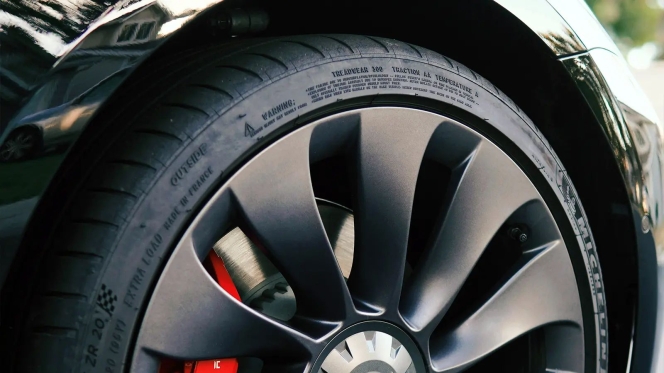
The narrower, bigger diameter tyres of electric vehicles are encouraging innovation around them. Supporting lower rolling resistance, the tyres are pushing suppliers and OEMs to explore new technological innovations. A leading German auto supplier for example has developed a ‘mechanical’ technology to ensure superior manoeuvring with near 180 degrees turn of the steered wheels.
This is a development that could be applied to ICE rear-wheel drive vehicles as well. Even, light-duty commercial vehicles such as the Tata Ace/1000 or the Switch Iev3/Iev4 that are aimed at the last mile delivery segment were backing up into a tight parking spot or navigating through a narrow lane is part of the job.
As designers and engineers toy with the idea of larger wheel wells and the ability of the steered – front – wheels to turn as much as 180 degrees, the use of narrower, bigger diameter tyres with low rolling resistance in electric vehicles is spurring yet another round of innovation, albeit as a part of the entire platform architecture that is rather software driven and subject to much virtual development in the interest of ‘time-to-market’ and a differentiated user experience.
With over 14 million small electric vehicles sold in 2023 the world over, the push has been to develop tyres that enhance operation and performance. Provide a typical ‘family’ car the ability to transform into a sports car given the wave of high torque available from the word ‘go’ in an electric vehicle.
With electric vehicle sales poised to increase 17.5 percent year-on-year globally to bridge 41.2 million units in 2029, electric vehicle tyres are expected to facilitate a further drop in rolling resistance while employing sustainable raw materials, technologies and manufacturing processes.
A sustainable EV tire design should consider the whole lifecycle of the product. Tires can be composed of well over 100 different raw materials. These are mixed and the rubber compounds are machined resulting is several components of the tire construction. EV tires are expected to be stronger and lighter, with less rolling resistance due to its importance in CO2 emissions and fuel consumption.
A key challenge being the development of tyre formulations for electric vehicles with the tread compound that is more resistant to abrasion, it is the instant torque availability that is necessitating tyres that may look like ICE vehicle tyres but are quite different in the way they handle traction and aid a longer drive range. There is the issue of kerb weight as well, not to overlook the new environmental pressures for durability and abrasion resistance.
Interestingly, new opportunities are being created on the vehicle engineering and dynamics side as well as on the side of electric vehicle tyre development and manufacture.
Starting with materials that are broadly classified as ‘renewable’ (can be sustained on time) and as ‘recycled’ (re-used and made from recovered end-of-life tyres), it is the tandem mixers that are producing more homogeneous rubber compounds, including tread compounds that employ optimised silica fillers.
Tyres for electric vehicles are demanding the use of triple or quadruple extruders for treads and sidewalls as per the vehicle weight, application and dynamics. Roller head or roller die units are also being used to produce inner liners as a single or multilayer sheet
In terms of textile coating of steel cord components in e-vehicle tyres, four-roll and Z-type calendars are used. Also, full tyre assembly machines that can produce tyres to tighter tolerances, higher specs such as superior uniformity and sans operator invention.
With electric vehicle tyres and ICE vehicle tyres being tested and validated differently primarily because of the higher load bearing capacity and low rolling resistance, electric vehicle tyres are made up of a different (softer) rubber compound than regular tyres with an eye on less noise, mentioned a testing expert at an OEM that is increasingly producing electric vehicles in India.
Pointing at an electric passenger vehicle the company launched in India recently, he averred, “Softer compounds are used to ensure less rolling noise and better transmission of torque from the motors to the road.”
With finer tolerances in need, optical machine vision systems for end-of-line quality inspections, including new technologies such as X-rays to check steel belts, cords and bead reinforcement are increasingly used.
They are used to check for air bubbles in inner liners as well. Advances in tyre design and manufacture include new developments in simulation software to model the performance of new designs quickly. This is without material input cots.
AI is being increasingly used to ensure superior analysis. AI is also used to automate manufacturing process as part of Industry 4.0 workflows.
Nissan To Shut Oppama Plant In Japan, Shift Production To Kyushu Facility As Part Of Restructuring Plan
- By MT Bureau
- July 16, 2025
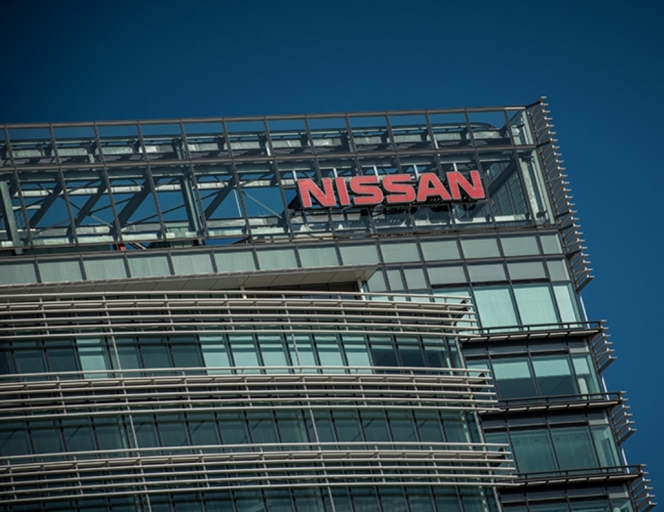
Japanese automaker Nissan Motor Co., which has been undertaking significant measures to improve its financial performance and is restructuring global operations, has announced that it plans to transfer and integrate vehicle production at the Oppama Plant, located in the Oppama district, to Nissan Motor Kyushu Co., Ltd in Fukuoka Prefecture.
This move part of the ‘Re:Nissan’ recovery plan aims to reduce its global production capacity from 3.5 million units (excluding China) to 2.5 million units, while maintaining a plant utilisation rate of around 100 percent. To achieve this, the company has been considering the consolidation of production sites from 17 to 10.
Nissan Reiterates Commitment For India, Targets 200,000 Unit Sales For FY2026
The new announcement will see vehicle production shutting down at Nissan’s Oppama plant at the end of fiscal 2027. Following this, both current and future models scheduled for production at Oppama will be manufactured at Nissan Motor Kyushu.
On the other hand, facilities and functions in the district – such as the Nissan Research Center, Grandrive, the crash test facility and Oppama Wharf – will remain unaffected and continue operations as usual.
Ivan Espinosa, CEO, Nissan Motor Co, said, "Today, Nissan made a tough but necessary decision. It wasn’t easy – for me or for the company – but I believe it’s a vital step toward overcoming our current challenges and building a sustainable future. The Oppama Plant is a proud part of our history, and its legacy will endure. I want to sincerely thank our employees, the local community, and our partners who have supported this plant with dedication and heart. We will continue to operate in the Oppama area with strong support for the local community, as we carry forward the spirit of Oppama plant and work to restore Nissan’s true value."
While the company has announced the shutdown of manufacturing operations at the Oppama plant, it is still exploring a ‘wide range of options to determine the most appropriate path forward’.
The company will continue to retain employees at the plant till the end of fiscal 2027 and is looking to initiate discussions with the union on the future course of action.
Furthermore, the Japanese automaker has also announced that production of the NV200, currently consigned to the Nissan Shatai Shonan Plant, will end in fiscal year 2026. A successor to the NV200 is planned for introduction in fiscal year 2027, with further details to be shared at a later date.
With this decision, Nissan said it has concluded all vehicle production consolidation actions in Japan under the Re:Nissan plan.
Also read: Nissan Secures $6 Billion Through Bond Issuance
- Skoda Auto Volkswagen India
- Skoda India
- Octavia
- Laura
- Superb
- Kodiaq
- Kushaq
- Slavia
- Kylaq
- Andreas Dick
- Piyush Arora
Skoda Auto Volkswagen Rolls Out 500,000th Made In India Skoda Car
- By MT Bureau
- July 04, 2025
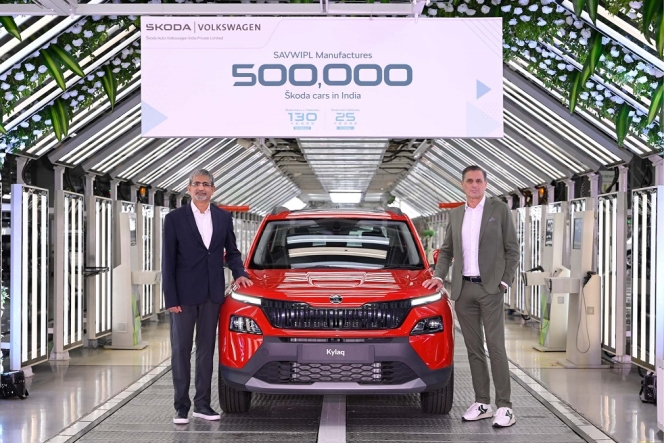
Skoda Auto Volkswagen India has announced that it has achieved a major manufacturing milestone in its operations. The company recently rolled out its 500,000th made-in-India Skoda vehicle.
The milestone comes after 24 years since the company introduced the first Skoda Octavia from its Chhatrapati Sambhaji Nagar facility (formerly Aurangabad) in 2001.
At present, the company manufactures vehicles across two facilities in India – Chhatrapati Sambhaji Nagar and Pune, with them now supporting the company’s new manufacturing plant in Vietnam with parts and components.
Over the years, Skoda has rolled out its iconic products such as Octavia, Laura, Superb and Kodiaq to new products like the Kushaq, Slavia and its first sub-4-meter Kylaq.
Andreas Dick, Board Member for Production and Logistics, Skoda Auto, said, “Reaching the milestone of 500,000 cars produced in India is a proud testament to our strategic vision of unwavering commitment to India and operational excellence. By nurturing local engineering talent and embedding global manufacturing processes, we’ve built an ecosystem that is agile, scalable, and responsive to a dynamically changing environment that meets the highest international standards. This achievement reflects the synergy between world-class innovation and India’s growing industrial prowess.”
Piyush Arora, CEO & Managing Director, Skoda Auto Volkswagen India, said, “It is not just about manufacturing 500,000 cars, but building and nurturing 500,000 connections. Every car that rolls out of our production lines, shares DNA of European engineering with unmatched quality, crafted with precision; delivering supreme comfort, safety, technology and driving dynamics. This achievement belongs as much to our customers as it does to our employees. Because what we’re manufacturing here isn’t just mobility, it’s a belief in what India can make for domestic as well as international markets. India plays a pivotal role in the Group’s growth strategy. I am glad to mention that we achieve this manufacturing milestone in the same year as Skoda Auto celebrates 130 years of legacy globally and 25 years of presence in India.”
The company revealed that approximately 70 percent of the vehicles manufactured in India were rolled out from its Chhatrapati Sambhaji Nagar plant.
Shell Lubricants Acquires Raj Petro From Brenntag Group To Further Expand Lubricants Business
- By MT Bureau
- July 03, 2025
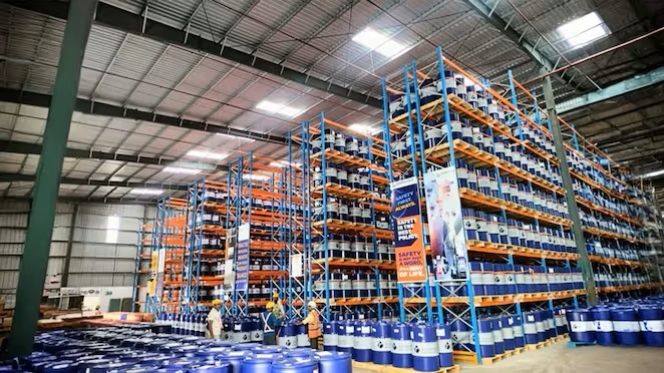
Shell Lubricants, the lubricants business of UK-headquartered Shell Group of companies, has acquired 100 percent equity stake in Raj Petro Specialities from Brenntag Group.
India is currently the world’s third-largest lubricant market and this initiative Shell expects to further expand its portfolio and customer base in the country, but also enhance its presence in the global markets.
Raj Petro is a multi-faceted petrochemical manufacturing and marketing company with business partners in about 100 countries across the globe and offers a wide range of products catering to power, energy, transport, construction, automotive, personal care, food, agriculture, pharmaceutical and other industries.
The acquisition of Raj Petro Specialities supports Shell Lubricants as it strives to grow its portfolio and customer base in India, which is one of its key growth markets.
Jason Wong, Executive Vice-President for Global Lubricants, Shell, said, “The addition of Raj Petro Specialities will help maximise value for Shell through a complementary product portfolio and increased scale of business, positioning Shell Lubricants for further growth in line with our unwavering focus on performance, discipline, and simplification.”
- SSAB
- Polmotors
- fossil-free materials
- decarbonised steel
- Vattenfall
- LKAB
- Volkswagen
- Audi
- BMW
- Peugeot
- Citroen
- Jeep
- Stellantis
- Mercedes-Benz
- Opel
- Maciej Grabos
- Robert Lewandowski
SSAB Partners Polmotors To Introduce Fossil-Free Steel Structural Automotive Components
- By MT Bureau
- June 27, 2025
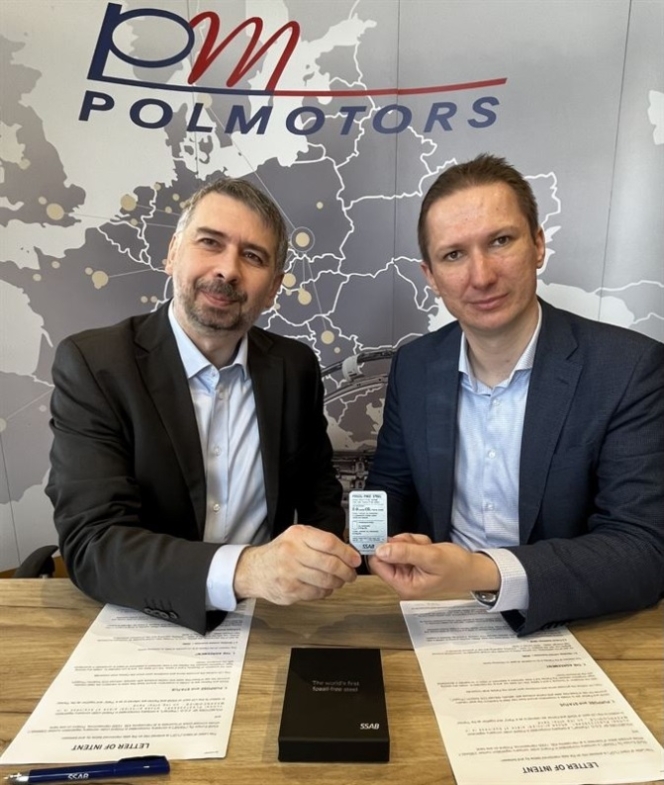
Swedish steel manufacturer SSAB has announced a new collaboration with Polmotors, a tier 1 supplier focusing on low-emission products, for exploring the potential of fossil-free materials in demanding automotive applications.
The partnership will see Polmotors explore manufacturing components using SSAB’s decarbonised steel.
SSAB is working on two unique decarbonised steels and aims to largely eliminate carbon dioxide emissions from its own operations. It has already introduced SSAB Zero, which is based on recycled steel and made using fossil-free energy. The company claims that it has also successfully produced the world’s first fossil-free steel. It works with iron ore producer LKAB and energy company Vattenfall as part of the HYBRIT initiative to develop a value chain for fossil-free iron- and steel production, replacing the coking coal traditionally used for iron ore-based steelmaking with fossil-free electricity and hydrogen. This process virtually eliminates carbon dioxide emissions in steel production.
On the other hand, Polmotors closely works with the likes of Volkswagen, Audi, BMW, Peugeot, Citroen, Jeep, Stellantis, Mercedes-Benz and Opel among others, to introduce high-performance components which are not only lighter but also greener.
Maciej Grabos, CEO, Polmotors, said, “Polmotors sees the future of fossil-free steel. And the potential competitive advantage of being an early adopter, positioning ourselves to meet the anticipated market demand from premium automotive OEMs. We design and manufacture crash management systems (CMSs) for these customers, such as bumpers and rally bars, so choice of materials is crucial. Polmotors looks forward to joint R&D – working with SSAB and the OEMs – for the implementation of new steel grades in our products.”
Robert Lewandowski, Key Account Manager, SSAB, said, “Polmotors recently celebrated its 35thanniversary. I’ve had the pleasure and privilege to meet them 20 years ago and observe how an initially small, Polish-owned enterprise turned into a global Tier1 supplier. Decarbonisation of the automotive industry requires cooperation across the supply chain where Tier 1 companies play an important role”.


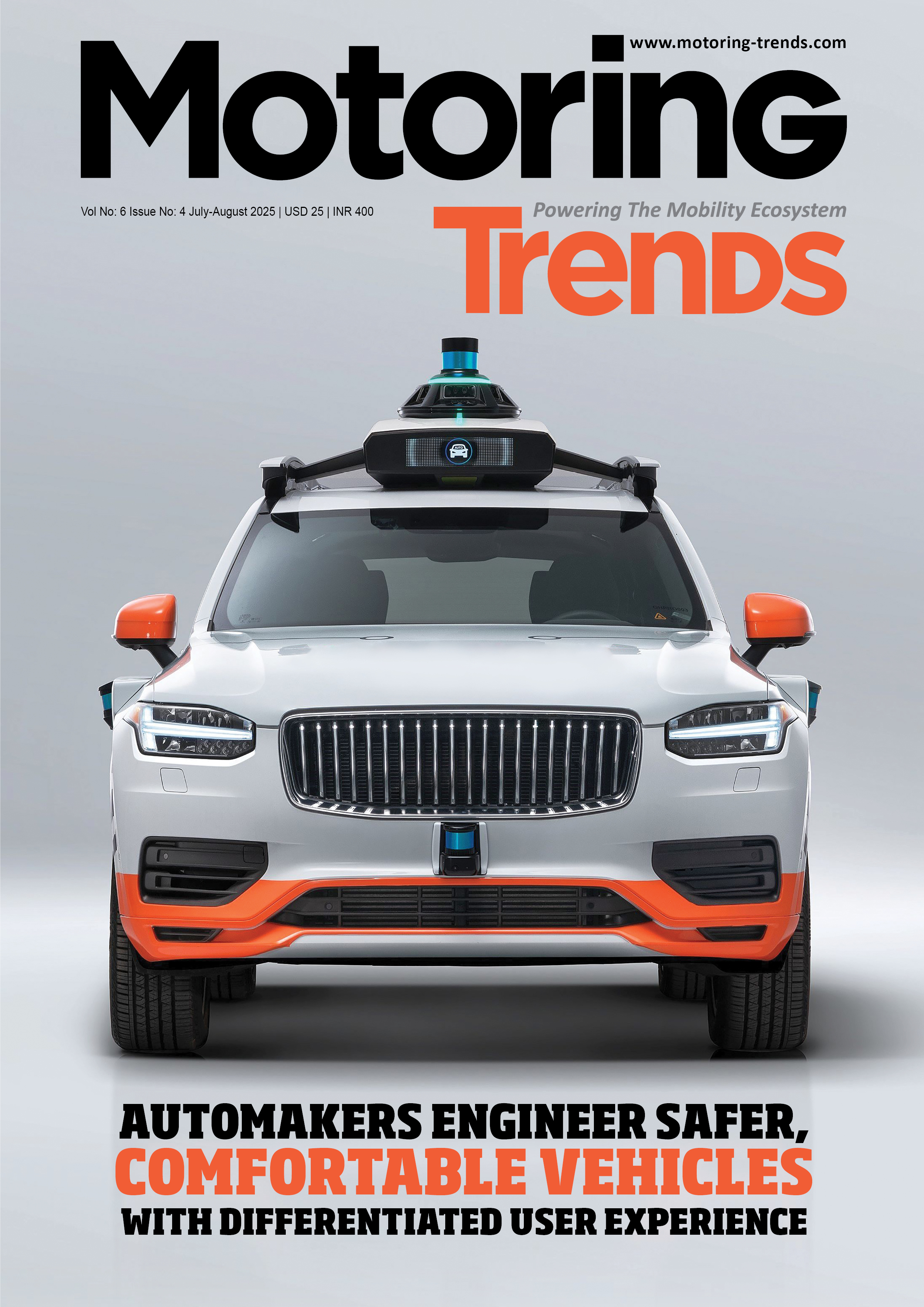
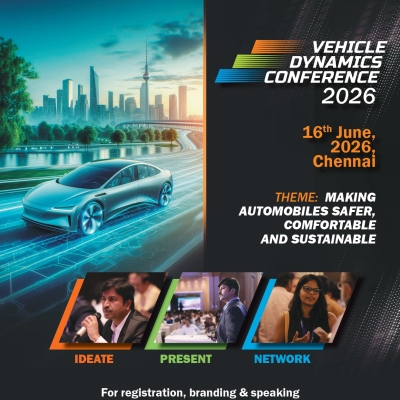
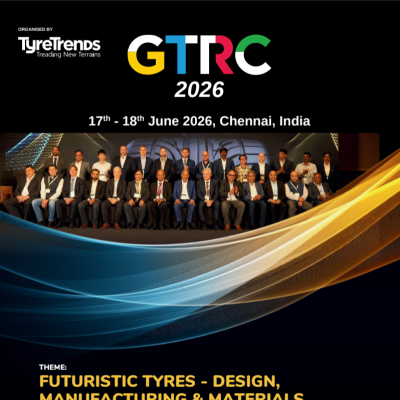
Comments (0)
ADD COMMENT